Keeping media out, trial on
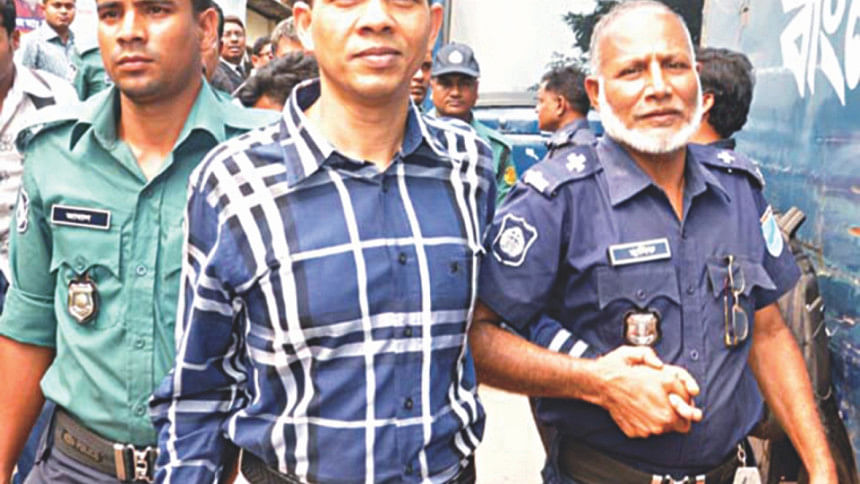
A Narayanganj courtroom was made off limits to journalists as the recording of witness testimonies began in the seven-murder trial yesterday.
Referring to a “court directive”, the public prosecutor and counsels for the accused said journalists cannot attend the proceedings. Police then asked the newsmen to leave the courtroom.
Journalists present there complied with that but their community in Narayanganj condemned it, saying it was “unprecedented.”
The incident also created concerns among victims' families and their counsel about fairness of the trial. They expressed doubts about getting justice in the absence of the media in the courtroom.
Talking to reporters later, PP Wajed Ali Khokon insisted that he asked the journalists to leave the courtroom as per the “court directive”.
But Law Minister Anisul Huq said the public prosecutor has no right to say this. “If the court feels, the presiding judge can pass an order to this effect in the open court,” he told The Daily Star.
Contacted, Abdul Khaleq, administrative officer of the court, said he was not aware of any order passed by the court prohibiting journalists from attending the proceedings. “Had the court passed any such order, I would have known,” he added.
The trial proceedings, previously billed for February 25, had to be deferred to yesterday as key accused Tareque Sayeed Mohammad was not produced before the court.
The public prosecutor then said Tareque was undergoing treatment, the prison authorities did not produce him.
The court asked the authorities concerned to make sure that Tareque Sayeed is brought to the court on February 29, if necessary, by an ambulance.
Seven people, including Narayanganj city corporation panel mayor Nazrul Islam and senior lawyer Chandan Sarkar, were abducted from the Dhaka-Narayanganj Link Road on April 27, 2014. Their bodies were found floating in the Shitalakkhya a few days later.
The District and Sessions Judge's Court of Naryanganj on February 8 this year, framed charges against 35 people, including Nur Hossain and three sacked Rab officials, in two cases filed over the murders. Of the 35, 12 are still on the run.
Nazrul's father-in-law Shahidul Islam alleged that Rab personnel abducted and killed Nazrul after taking Tk 6 crore from ward councillor Nur Hossain for the contract killing.
Yesterday, 23 accused including Nur Hossain and the three sacked Rab officials -- Tareque Sayeed, Arif Hossain and Masud Rana -- were produced before the court amid tight security.
Around 10:45am, Judge Syed Enayet Hossain started recording deposition of Bijoy Kumar Paul, the complainant in one of the two cases and son-in-law of Chandan Sarker.
A few minutes before the judge took his seat, PP Wajed Ali Khokon said that as per a court directive, none but the complainants, accused, their lawyers and court officials concerned could be present at the courtroom.
Khokon Saha, a lawyer for accused Nur Hossain and general secretary of Narayanganj city Awami League, also echoed the same.
Then, as asked by police, all the journalists present there had to leave.
Shakhawat Hossain, the victims' lawyer in both cases, told The Daily Star that the court did not give any such directive.
WHAT EXPERTS SAY
Former Law Minister Shafique Ahmed said the trial in the seven-murder case was a public trial, not a camera trial.
“Only the court concerned can take any decision prohibiting newsman for security reasons. None other than the court can prohibit reporters from covering any trial proceedings,” he told The Daily Star.
Eminent jurist Shahdeen Malik said, “It is a constitutional mandate that trials are open … that is to say all interested parties shall have access to the courtroom during trial.”
A few laws such as Family Court Ordinance-1985 and Women and Children Repression Prevention Act 2000 provide for certain exceptions for holding trial behind closed doors.
“The exception of trial behind closed doors can only be ordered by the judge of the court concerned. Hence it doesn't seem to me that the public prosecutor of a court has any authority to exclude anyone including journalists from a courtroom,” he said
“Besides, this is a trial in which the whole nation has an interest and journalists can convey the nation about the development of the trial,” he added.
'WE ARE CONCERNED'
Shahidul Islam, father-in-law of victim Nazrul Islam, said: “We are concerned over getting justice after the journalists were driven out.”
He alleged that a group of government lawyers and lawyers of the accused were trying to “taint the case” and “play hide and seek”.
Shahidul, also a witness in the other case, said he too had to leave the courtroom.
Selina Islam, wife of Nazrul and complainant of a case, said driving out journalists was an ominous sign and in the absence of the vigilance of journalists, the lawyers of the accused can divert the case.
She hoped the court will allow the media during the trial proceedings and the people will get information about it through newsmen.
Mizanur Rahman Ripon, brother of one of the seven victims Moniruzzaman Swapan, demanded the trial be held in the presence of media.
Victims' counsel Shakhawat Hossain, also former president of Naryanganj District Bar Association, said the media played a vital role to unearth the secret of the killings and to expedite the movement for justice. “The cases came to this stage due to a pivotal role of the media,” he added.
He alleged that the public prosecutor and the lawyers of the accused took the strategy to drive out the journalists from the courtroom so that their ill-attempts to influence the trial do not come to light.
“We have full confidence in the court but we are concerned over getting justice because of different types of ill-attempts made by the defence,” said Shakhawat, adding that he was even personally receiving pressure on different occasions.
Terming the incident “unfortunate”, Afzal Hossain, general secretary of Narayanganj District Journalist Union, said journalists never faced problems in covering court proceedings.
But things had changed after Nur Hossain was repatriated from India, he said.
Afzal added the court should look into the matter to ensure transparency in the trial.
YESTERDAY'S PROCEEDINGS
The court recorded the testimony of Bijoy Kumar Paul. Lawyers representing 22 accused, among them 12 fugitives, cross-examined him before adjourning the case proceedings until March 7, when defence counsel of Nur Hossain and others will cross-examine him.
After the proceedings, Bijoy told reporters that his father-in-law Chandan Sarkar and his driver were abducted from Dhaka-Narayanganj Link Road area. Their bodies were dumped in Shitalakkhya River after killing them.
He filed the case against unnamed people and the police, after investigation, submitted charge sheet against 35 people and as a complainant, he gave his testimony and prayed for justice.
The court also fixed March 3 for recording testimony in another case filed in this connection.

 For all latest news, follow The Daily Star's Google News channel.
For all latest news, follow The Daily Star's Google News channel. 

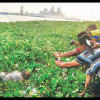

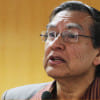
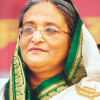
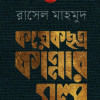


Comments